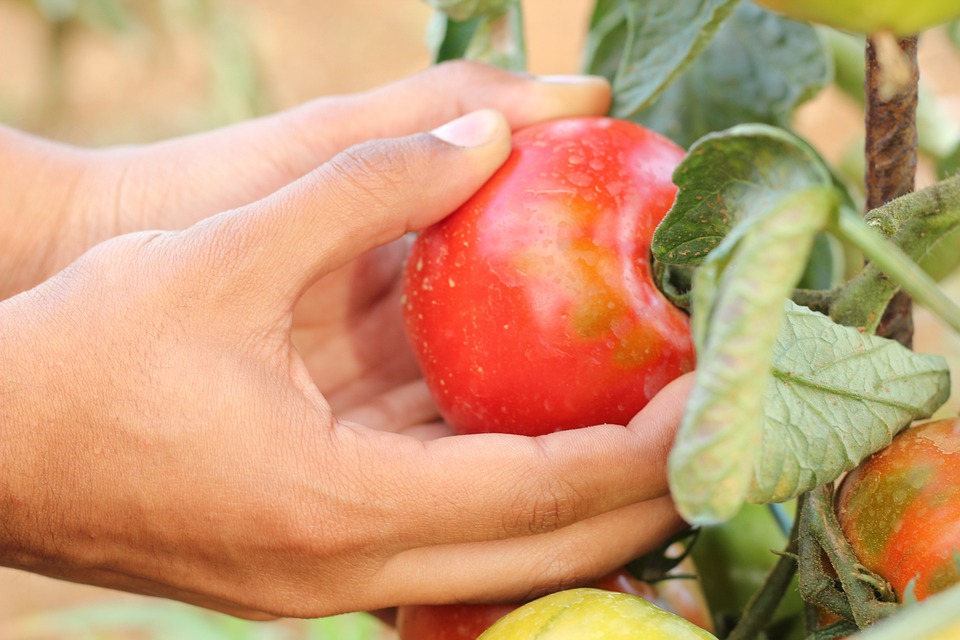Sustainable Agriculture: A Key Solution to Addressing Climate Change
As a sustainable farmer and gardener, I have witnessed firsthand the remarkable impact that sustainable agriculture can have on addressing climate change. In today’s world, where the effects of climate change are becoming increasingly apparent, it’s critical to explore and implement solutions that can help mitigate its impact. Sustainable agriculture not only provides a way to produce food in an environmentally friendly manner, but it also offers a range of benefits for the planet and its inhabitants. In this article, we’ll delve into the reasons why sustainable agriculture is a key solution to addressing climate change and how it can be implemented on a larger scale.
The Impact of Conventional Agriculture on Climate Change
Conventional agriculture practices, such as the use of chemical fertilizers and pesticides, monocropping, and excessive tilling, have significantly contributed to climate change. These practices have led to soil degradation, loss of biodiversity, and increased greenhouse gas emissions. According to the Food and Agriculture Organization (FAO), agriculture is responsible for nearly a quarter of global greenhouse gas emissions, making it a major contributor to climate change.
Furthermore, the reliance on fossil fuels for agricultural machinery and transportation has further compounded the environmental impact of conventional agriculture. The carbon footprint of the food we consume is much larger than we often realize, and it’s time to adopt more sustainable practices to mitigate these effects.
The Role of Sustainable Agriculture in Addressing Climate Change
Sustainable agriculture offers a way to produce food while minimizing the negative impact on the environment. By implementing sustainable practices, such as organic farming, crop rotation, agroforestry, and conservation tillage, farmers can reduce their greenhouse gas emissions, conserve water, and build resilient landscapes.
Organic farming practices, for example, eliminate the use of synthetic pesticides and fertilizers, thereby reducing the carbon footprint associated with their production and application. Additionally, organic farming promotes soil health and biodiversity, leading to increased carbon sequestration and resilience to extreme weather events.
Crop rotation and agroforestry are practices that contribute to soil health and carbon sequestration. By diversifying crops and incorporating trees into agricultural landscapes, farmers can improve soil structure, enhance water retention, and capture carbon from the atmosphere.
Conservation tillage, which minimizes soil disturbance, can also help reduce greenhouse gas emissions and soil erosion. By leaving crop residues on the soil surface, farmers can protect the soil from erosion and promote microbial activity, leading to increased carbon storage in the soil.
In addition to these practices, sustainable agriculture also emphasizes the importance of reducing energy consumption by utilizing renewable energy sources, such as solar or wind power, and adopting efficient irrigation systems to minimize water usage.
The Benefits of Sustainable Agriculture for the Planet and its Inhabitants
The adoption of sustainable agriculture practices not only helps mitigate the effects of climate change but also offers a range of benefits for the planet and its inhabitants. Sustainable agriculture contributes to the preservation of natural resources, such as soil and water, and promotes the conservation of biodiversity. By maintaining healthy ecosystems, sustainable agriculture supports pollinators, beneficial insects, and wildlife, which are essential for food production and ecosystem stability.
Furthermore, sustainable agriculture has the potential to improve the livelihoods of farmers and rural communities by promoting economic resilience and food security. By diversifying crops and implementing agroecological practices, farmers can reduce their dependence on external inputs and improve their resilience to climate-related challenges.
Sustainable agriculture also promotes healthier and more nutritious food by minimizing the use of chemical inputs and promoting regenerative farming practices. By prioritizing soil health and biodiversity, sustainable agriculture can enhance the nutritional quality of food and contribute to the well-being of consumers.
Pro Tips for Implementing Sustainable Agriculture Practices
– Start small: If you’re new to sustainable agriculture, start by implementing one or two practices on your farm or garden, such as composting, cover cropping, or reduced tillage. Gradually expand your sustainable agriculture practices as you gain experience and knowledge.
– Seek support and resources: There are many resources available for farmers and gardeners interested in sustainable agriculture, such as workshops, training programs, and technical assistance. Take advantage of these opportunities to learn from experts and connect with the sustainable agriculture community.
– Embrace experimentation: Sustainable agriculture is a dynamic field that requires experimentation and adaptation. Don’t be afraid to try new practices and learn from your successes and failures. Each farm or garden is unique, so it’s important to tailor sustainable agriculture practices to your specific context.
– Share your knowledge: Sustainable agriculture thrives on knowledge sharing and community engagement. Share your experiences and insights with fellow farmers, gardeners, and consumers to promote the adoption of sustainable agriculture practices.
Conclusion
Sustainable agriculture offers a promising solution to the challenges posed by climate change, providing a way to produce food in an environmentally friendly manner while promoting the conservation of natural resources and biodiversity. By implementing sustainable agriculture practices, such as organic farming, crop rotation, agroforestry, and conservation tillage, farmers can reduce their greenhouse gas emissions, conserve water, and build resilient landscapes. The benefits of sustainable agriculture extend beyond environmental preservation, encompassing economic resilience, food security, and improved nutrition. As individuals, communities, and nations, we must prioritize and support the transition to sustainable agriculture to address the urgent issue of climate change and contribute to a more sustainable future for our planet.



